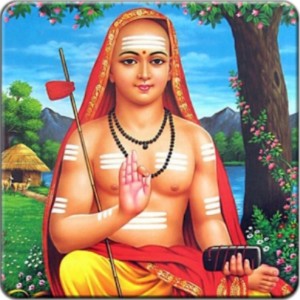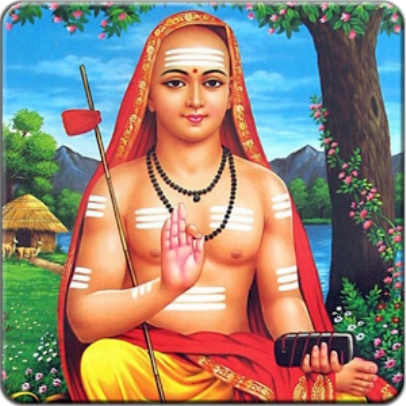 Compared with all other means, knowledge is the only direct means to liberation. As cooking is impossible without fire, so is liberation impossible without knowledge.
Compared with all other means, knowledge is the only direct means to liberation. As cooking is impossible without fire, so is liberation impossible without knowledge.
Ritual cannot dispel ignorance, because they are not mutually contradictory. But knowledge surely destroys ignorance, as light destroys the densest darkness.
The self appears to be conditioned by virtue of ignorance. But when that (ignorance) is destroyed, the unconditioned self shines by its own light, like
the sun when the clouds have disappeared.
Having purified, by repeated instruction, the soul that is turbid with ignorance, knowledge should efface itself, as the paste of the cleaning-nut does with water.
The phenomenal world, abounding in desire, hatred, etc., is verily like a dream. While it lasts, it seems to be real, but, when one awakes, it becomes unreal.
Like the (illusion of) silver in mother-o’-pearl, the world appears to be real only until the Supreme Self, the immutable reality behind everything, is realized.
Like bubbles in water, the worlds are born, remain and dissolve in the
Supreme Lord that is the material cause and foundation of all things.
On the eternal Vishnu, who is pure existence and consciousness, as the common factor, all these various appearances are superimposed,
like wristlets and other forms on gold.
Like space, the Lord Vishnu, coming in contact with various conditions, appears to be different by reason of their differences, but is seen to be undifferentiated when those (conditions) are destroyed.
Only by virtue of varying conditions are caste, name, periods of religious life, etc., imposed on the self, like taste, color and other distinctions imposed on water.
The place for experiencing happiness and misery, which is made up of the
fivefold compounds of the great elements and is obtained as the result of past actions, is called the (dense) body.
The instrument of enjoyment, which is made up of the uncompounded elements and which consists of the five life-forces, the mind, the consciousness, and the ten senses, is the subtle body.
The beginningless illusion that is indefinable is called the causal body.
One should understand the self as other than these three bodies (or conditions).
The pure self, by the relation of the five sheaths, etc., appears to assume their respective natures, like a crystal reflecting a blue cloth, etc.
One should separate the grain of the pure inner self from the chaff
of the body and – other sheaths by the threshing of reason.
Although the self is at all times and in all things, yet it cannot shine in
everything, but will shine only in the consciousness, just as a
reflection will appear only in polished surfaces.
One should understand the self to be always like a king, different
from the body, senses, mind, consciousness, and eyes,
the witness of their activities.
To the indiscriminating, the self appears to be active while (in reality) the senses (alone) are active, in the same way that the moon
is seen as if running, when the clouds move.
The body, senses, mind and consciousness, carry on their respective activities by depending on the consciousness of the self, like men depending on the sun’s light.
Owing to indiscrimination, men attribute the qualities and activities of the body and the senses to the self that is pure existence and consciousness, in the same way as blue color is attributed to the sky.
The self undergoes no modification, nor can
knowledge arise in any manner from individual
consciousness (alone).
Excerpted from Atma Bodha. The 1230th birth anniversary of Adi Shankaracharya was celebrated on April 20
Adi Shankaracharya







